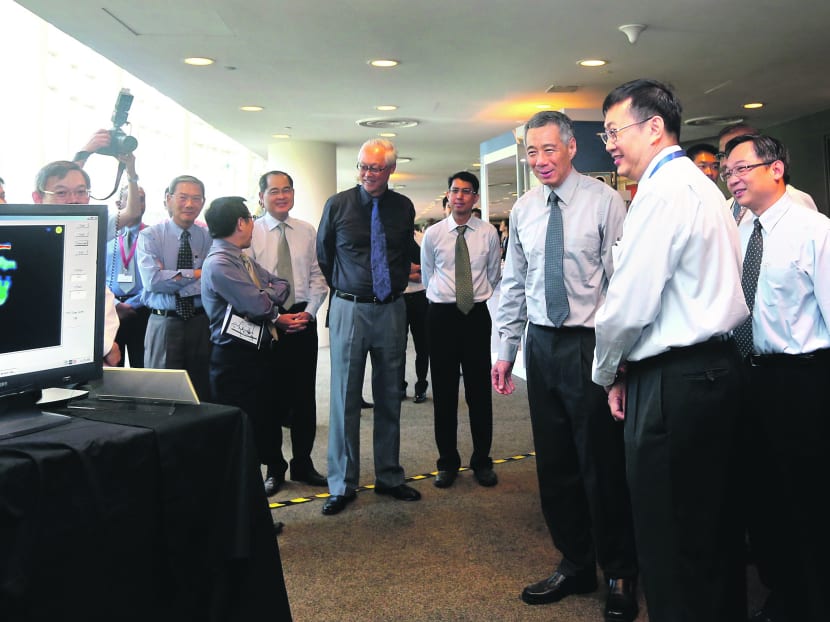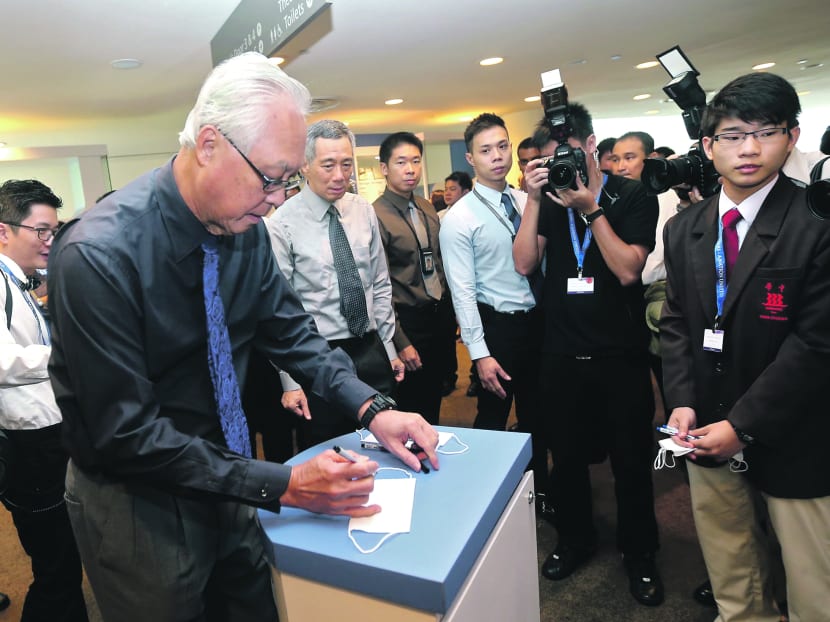Best defence against disease outbreak is psychological preparedness: PM Lee
SINGAPORE — In the event of an outbreak similar to or even more lethal than Severe Acute Respiratory Syndrome (SARS), Singapore’s most important defence would be being “psychologically prepared”, said Prime Minister Lee Hsien Loong yesterday.


SINGAPORE — In the event of an outbreak similar to or even more lethal than Severe Acute Respiratory Syndrome (SARS), Singapore’s most important defence would be being “psychologically prepared”, said Prime Minister Lee Hsien Loong yesterday.
Speaking at the SARS commemorative ceremony marking the 10th year since the day Singapore was declared SARS-free, Mr Lee said: “Ultimately, our most important defence is to be psychologically prepared … Prepared to stay calm and carry on with our lives. Prepared to be socially responsible — stay at home if you are ill; wear a mask if you need to go out; wash your hands regularly. Prepared to marshal our resources and overcome any outbreaks together.”
Science and medicine have “made tremendous progress” since SARS to allow for better analysis and responses to new viruses and pathogens, but “no country can expect to be spared in a pandemic”.
“The world is much more connected today than when SARS struck ... A new contagious disease will spread even more swiftly and widely,” Mr Lee said, noting that new viruses — such as the outbreak of the H7N9 avian influenza in China — emerge all the time.
In the meantime, Singapore has moved to strengthen responses to public emergencies and improve capabilities; a new National Centre for Infectious Disease will replace the Communicable Disease Centre in 2018.
Four hundred people attended the event yesterday morning, including former SARS patients and their family members, as well as healthcare workers who fought SARS. Members of the Ministerial Committee on SARS and the SARS COMBAT Team that helmed the national response in 2003 were also present, including Emeritus Senior Minister Goh Chok Tong, who was Prime Minister at the time.
In a post on his Facebook page, Mr Lee also wrote: “We will never forget the 33 who succumbed to SARS. Our deepest appreciation goes to our brave healthcare workers, who risked their lives caring for SARS patients.”
During the ceremony, Mr Lee also paid tribute to the efforts of ordinary Singaporeans, such as those who sent food to neighbours under quarantine and taxi drivers who, despite the risk, continued to ferry healthcare workers to and from Tan Tock Seng Hospital.
Among them was cab driver Haniff Mahbob, who was present yesterday.
Said Mr Haniff, who took care to wear a mask and disinfect his taxi at the time: “It was a sense of social responsibility. I knew that the nurses were doing a great job, and it is my job to support by continuing to ferry passengers. Life has to go on.”
During the Singapore Medical Association’s SARS 10th anniversary symposium yesterday evening, National University of Singapore President Tan Chorh Chuan, who was Director of Medical Services at the Ministry of Health during the outbreak, said in his keynote lecture that the strategies adopted by the authorities to contain the spread of the virus worked “pretty well”.
But he also cited a missed opportunity in research to “gain better insight of things that would be helpful for us going forward” — for instance, why some individuals were “super-spreaders”. In Singapore, five patients accounted for infection in 121 out of 206 probable SARS cases, he said.
More samples could have been collected from the five patients over a number of days to detect any patterns in “the amount of viral loading in the samples”, and efforts made to reconstruct how they came into contact with people.
In his lecture, Professor Tan also mentioned a lesser known cluster of SARS cases — a hospital healthcare worker who was to be under quarantine went to play mahjong with friends, resulting in a cluster of seven cases in early April 2003. They were isolated without any further transmissions.






